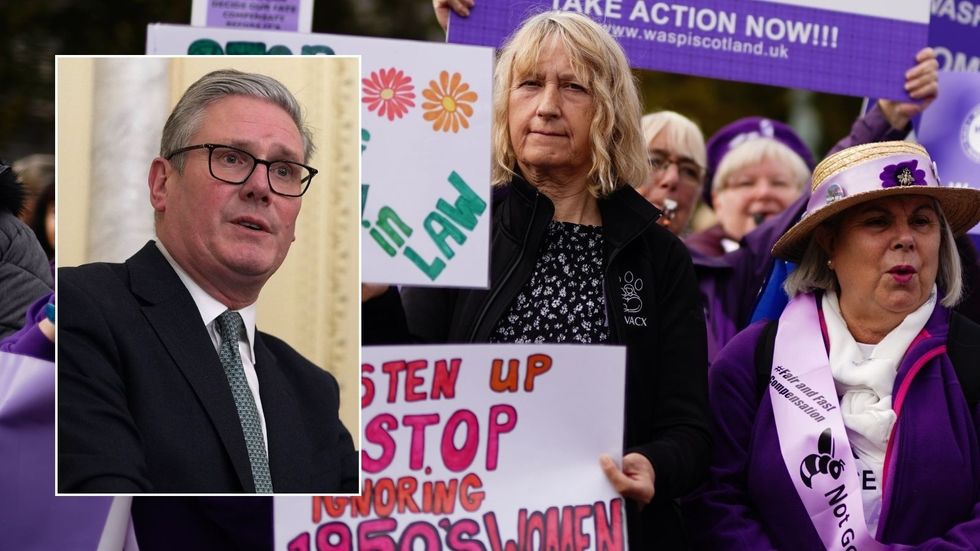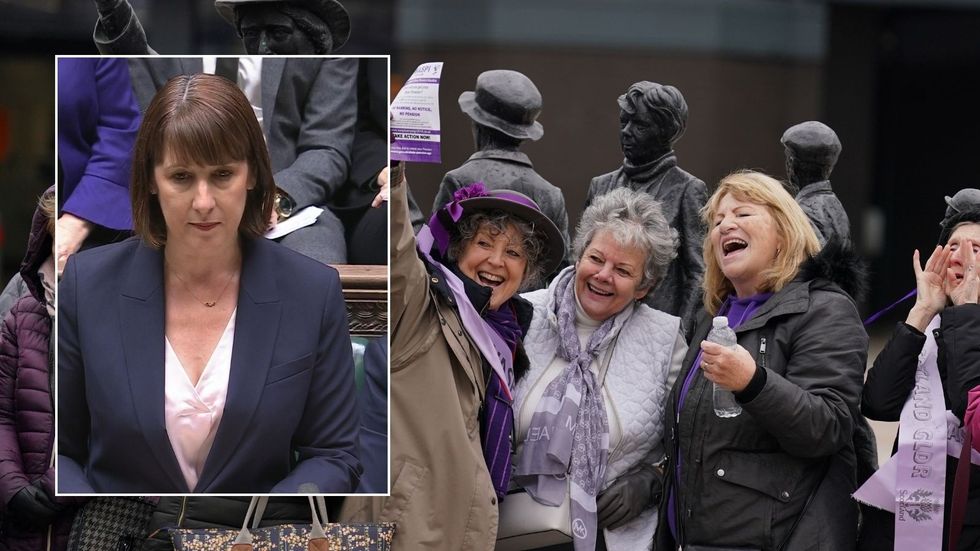Labour’s decision to deny state pension compensation to women born in the 1950s after historic “maladministration” has been slammed as “disappointing” by the senior civil servant who recommended a potential payout.
Rebecca Hilsenrath, the Parliamentary and Health Service Ombudsman (PHSO), has claimed if a business or banking institution was found liable for the same malpractice, the Government would likely compel the guilty party to pay the victims.
She also noted that “in almost all cases” the parties and departments she investigates promise to accept the PHSO’s investigations. Earlier this year, the PHSO proposed a potential sum of between £1,000 to £2,750 to those negatively affected by state pension age equalisation.
Earlier this week, the Government rejected calls to compensate Women Against State Pension Inequality (Waspi) women despite the Parliament and Health Service Ombudsman’s (PHSO) report suggesting a payout of up to nearly £3,000 for those affected by changes to the retirement age.
The decision, announced by pensions minister Liz Kendall in the House of Commons, means there will be no windfall for the 3.8 million women whose retirement plans were disrupted when the state pension age increased from 60 to 65, and then to 66.
Do you have a money story you’d like to share? Get in touch by emailing [email protected].

Waspi women are outraged by Labour’s decision to not offer a state pension compensation package to women born in the 1950s
PA
Kendall claimed that “the vast majority” of affected women were aware of the changes. She also noted that the PHSO had previously suggested there was no direct financial loss for the women from the Department for Work and Pensions’ (DWP) perceived lack of communication.
The Government has pledged to ensure “clear and sufficient” notice will be given for any future changes to the state pension age and has apologised for any distress caused
The Waspi campaign represents women who believe they have significant disruption to their retirement plans due to state pension age changes. Many of these women, who had built their retirement plans around receiving their state pension at 60, saw their pension age increase first to 65 and then to 66.
In her response to Labour’s decision, the PHSO shared: “It is particularly disappointing that the Government has not accepted our findings that sending letters earlier than they did would have helped very many women.
“It will be hard for those women to hear, and I understand their frustration. If this proven maladministration had been by a bank or private sector institution, regulators and courts would probably compel payment of compensation with minimal requirement to prove direct loss.
“My office is neither a court nor a regulator and we have no powers to compel the Government to act. In almost all cases, the organisations that we investigate accept our recommendations.”
Hilsenrath cited a post by ITV journalist Robert Peston on X which highlights the potential hypocrisy of the Government in not putting forward a compensation package for Waspi women.
On social media, Peston shared: “First, if this proven maladministration had been by a bank or private sector institution, my hunch is that regulators and courts would have compelled the payment of significant compensation with minimal requirement for claimants to prove direct loss.
“The ability of Government to just say no is a striking contrast. Second the emotional distress and hardship suffered by many older women was accepted by the ombudsman, but is not deemed by the work and pensions secretary to merit financial compensation.
“Third this is the second time in its short life that Prime Minister Keir Starmer’s Government has chosen to alienate an important group of pensioner voters.”
LATEST DEVELOPMENTS:
 Waspi campaigners have fought for compensation to address historic injustices PA
Waspi campaigners have fought for compensation to address historic injustices PA In her speech to MPs, Liz Kendall MP said: “Mr Speaker, this has been an extremely difficult decision to make. But we believe it is the right course of action and we are determined to learn all the lessons to ensure this type of maladministration never happens again.
“First, we want to work with the Ombudsman to develop a detailed Action Plan out of the report, so every and all lessons are learnt. Second, we are committed to setting clear and sufficient notice of any changes in the State Pension age so people can properly plan for their retirement.
“And third, I have tasked officials to develop a strategy for effective, timely and modern communication on the State Pension that uses the most up-to-date methods.
Building on changes that have already been made … like the online ‘Check Your State Pension’ service, which gives a personal forecast of your state pension including when you can take it.”